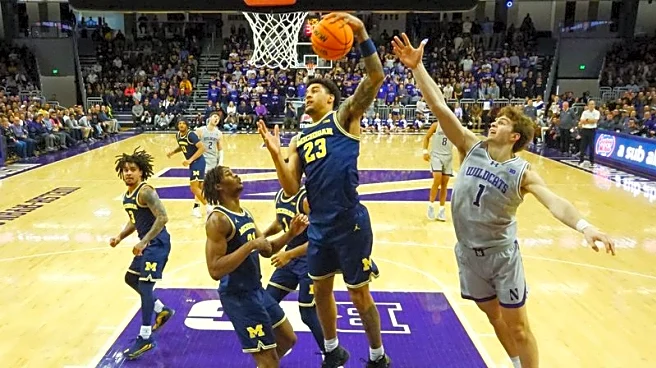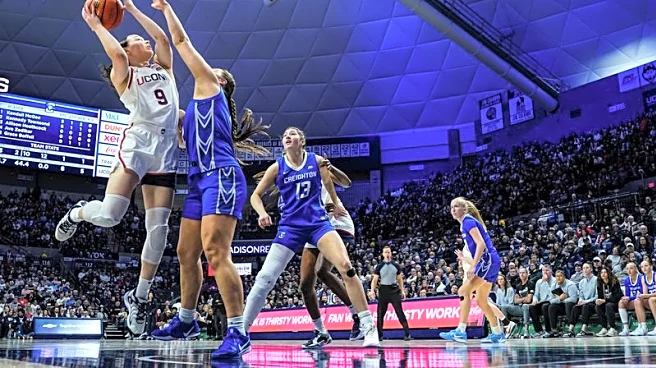What's Happening?
OpenAI has introduced a new social media app called Sora, which is designed to create and share AI-generated videos using its upgraded Sora 2 model. The app allows users to upload their likeness for cameo appearances in AI videos, and features an algorithmically curated feed similar to other social media platforms. Users can interact with videos by liking, commenting, and sharing, and can filter content based on mood. The app's unique feature is its ability to generate realistic deepfake videos, including those of OpenAI CEO Sam Altman.
Why It's Important?
The launch of Sora represents a significant shift in social media dynamics, as it leverages AI to create content that mimics human-generated videos. This raises questions about authenticity and the potential for misuse, particularly with deepfake technology. The app's ability to produce realistic videos could impact public perception and trust, as well as raise ethical concerns about privacy and consent. It also highlights the growing influence of AI in creative industries and its potential to reshape content creation.
What's Next?
As Sora gains traction, OpenAI may face scrutiny over the ethical implications of its deepfake capabilities. The company will need to address concerns about privacy and the potential for misinformation. Additionally, the app's success could prompt other tech companies to explore similar AI-driven content platforms, potentially leading to increased competition and innovation in the social media space.
Beyond the Headlines
The introduction of AI-generated content on social media platforms like Sora could lead to broader discussions about the role of AI in society, particularly in terms of creativity and human interaction. It may also prompt regulatory bodies to consider new guidelines for AI-generated media to ensure ethical use and prevent exploitation.









